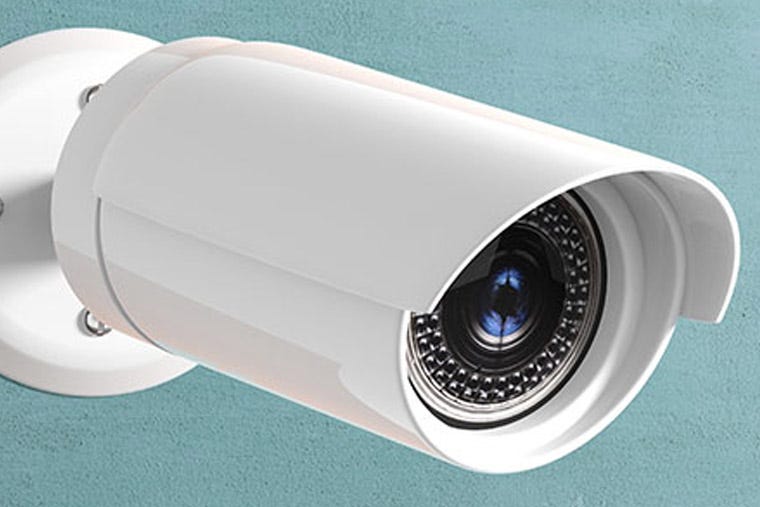

CCTV Buying Guide
A useful guide to help you purchase the correct CCTV system for you.
What should I consider when buying a CCTV kit?


Number of Cameras and Channels
When purchasing a CCTV kit, ensure you look at how many cameras and channels the product features. The number of cameras refers to the number of cameras that are supplied within the box. The number of channels is the number of cameras that can be connected to the DVR.


Infrared Night Vision
Infrared night vision is a useful feature when looking for a CCTV kit, as it enables your cameras to view and record in the dark. The distance that these cameras can record varies between products, so ensure you purchase a camera with the correct standard of night visibility to your surroundings.


Image Quality
CCTV image quality is measured in pixels. This refers to the number of horizontal and vertical lines across the image. The higher the number of pixels, the higher the quality of the image. This is particularly important if you’re recording at further distances or need to zoom.




DVR/NVR Capacity
The capacity refers to the amount of footage the DVR/NVR can hold. Once the storage is full, the oldest files get deleted and recorded over. The number of cameras you have and the quality of the image you record will affect what size HDD you need. Therefore, if you want to hold a large amount of high-quality footage then a larger hard drive would be beneficial.


Mobile Connectivity
All our CCTV camera kits connect to your WiFi network, meaning you can log in from your computer, tablet or smartphone to view a live feed from any camera within your network. This is a great feature for keeping an eye on your property when you are away from home.


What is DVR and NVR?
Digital Video Recorder (DVR)
Digital Video Recorders are used with analogue CCTV. This option uses a BNC cable to connect the cameras to the digital recording device. Analogue CCTV is the older option on the market. The option requires wiring to be installed from the cameras to the Digital Video Recorder (DVR) to make recordings. Analogue CCTV is typically lower resolution and is the most cost-effective option and will suffice within most homes. Analogue CCTV is best suited to customers where high levels of detail is not required.
Network Video Recorder (NVR)
Network video recorders are used with IP CCTV. The cameras transfer footage to your network video recording device using your home network. Certain cameras can be connected to the NVR without wires, or alternatively an ethernet cable can be used.
IP CCTV is generally the more expensive option, however as popularity increases the price is reducing. This choice is ideal for easy set-up and recording precise details such as license plates.
Wired Vs. Wireless Vs. Wire-Free


Wired
Wired security is the most traditional and used primarily on larger properties. evidenced by their name, wired security, these systems require cables for power, internet connection, and video transmission. A cable runs from the camera to a recorder, which then connects to your router.
There are two choices for how a wired security system is powered, a separate power cord or one POE cable. POE or power Over the Ethernet enabled systems only require one cable which provides both power and internet connection.
Wireless
Wireless security systems are a great alternative to wired systems. Wireless systems aim to address the most significant downside to a wired security camera system: installation. The key difference between a wired and a wireless security camera system is that security footage is transmitted wirelessly from the camera to the recorder. Wireless systems connect to your Wi-Fi network (either wirelessly or with a cable), however, do still require wired power.
Wire-Free
Wire-free security cameras are the most flexible and easy to install. Due to advances in battery technology, wire-free security cameras have evolved significantly and are a great security option. They require no cables at all.
Smart Home Security
There are many different mobile card readers available in the market, all with varying features and benefits - it is important to consider your specific business needs before deciding which one is right for you.
Take a look at the table below to see some of the key features of each Mobile Card Reader available at Ryman to help you decide which one is best for you;


What are the benefits of CCTV & Security?


Reduce Crime Rate
Visible cameras can reduce crime by up to 70% by deterring thieves from entering your property.


24/7 Coverage
Monitor your property all day every day with a constant recording feed.


Capture every angle
Never miss anything. View multiple angles of your property simultaneously.


Protect your business
Monitor your staff’s arrival times, breaks and any time spent away from their desks.


Stay alert
Some kits provide instant alerts to your phone or smart device, keeping you notified with any important information.


Prosecution
Having visual evidence strengthens your case if anything ever becomes a legal matter.


Safety
Not only is having a CCTV kit proven to reduce crime, it also provides peace of mind and will make you feel more at ease within your home.
You can also add to your business security with our range of CCTV cameras at Ryman Business.














